Directors & Staff
- Joshua Kresh, Interim Executive Director
- Kristina Pietro, Director of Operations and Events
- Mary Clare Durel, Program and Communications Coordinator
Faculty Advisor
- Seán O’Connor, Faculty Advisor & Senior Scholar
Senior Fellows
- Sandra Aistars, Senior Fellow for Copyright Research and Policy & Senior Scholar
- Olufunmilayo B. Arewa, Senior Fellow for Entrepreneurship & Senior Scholar
- Eric Claeys, Senior Fellow for Scholarly Initiatives & Senior Scholar
- Emily Michiko Morris, Senior Fellow for Life Sciences & Scholar
- Kristen Osenga, Senior Fellow for Innovation Policy & Senior Scholar
Senior Scholars
- Kristina M. L. Acri, née Lybecker, Senior Scholar
- Jonathan Barnett, Senior Scholar
- Daniel R. Cahoy, Senior Scholar
- Tun-Jen Chiang, Senior Scholar
- Gregory Dolin, Senior Scholar
- John F. Duffy, Senior Scholar
- Joseph Fishman, Senior Scholar
- Jon M. Garon, Senior Scholar
- Chris Holman, Senior Scholar
- Justin (Gus) Hurwitz, Senior Scholar
- Steven D. Jamar, Senior Scholar
- F. Scott Kieff, Senior Scholar
- Erika Lietzan, Senior Scholar
- Daryl Lim, Senior Scholar
- Adam MacLeod, Senior Scholar
- Irina D. Manta, Senior Scholar
- Michael Mireles, Senior Scholar
- Lateef Mtima, Senior Scholar
- Loren Mulraine, Senior Scholar
- Christopher M. Newman, Senior Scholar
- Eric Priest, Senior Scholar
- Michael Risch, Senior Scholar
- Alexandra Jane Roberts, Senior Scholar
- W. Keith Robinson, Senior Scholar
- Mark Schultz, Senior Scholar
- Ted Sichelman, Senior Scholar
- Brenda Simon, Senior Scholar
- James Stern, Senior Scholar
- Saurabh Vishnubhakat, Senior Scholar
Scholars
- Lolita Darden, Scholar
- Charles Delmotte, Scholar
- Gerardo Con Díaz, Scholar
- Tabrez Ebrahim, Scholar
- Laura Ford, Scholar
- Bowman Heiden, Scholar
- Camilla A. Hrdy, Scholar
- John Liddicoat, Scholar
- Yogesh Pai, Scholar
- Zvi S. Rosen, Scholar
- Amy Semet, Scholar
- Toshiko Takenaka, Scholar
- Bhamati Viswanathan, Scholar
Jurist in Residence
- Chief Judge Susan G. Braden (Ret.), Jurist in Residence
Practitioners in Residence
- Terrica Carrington, Practitioner in Residence
- Theo Cheng, Practitioner in Residence
- David Grossman, Practitioner in Residence
- Joe Keeley, Practitioner in Residence
- Dale Lazar, Practitioner in Residence
- Hina Mehta, Practitioner in Residence
- Stephanie Semler, Practitioner in Residence
- Eric Solovy, Practitioner in Residence
Past Senior Scholars and Scholars
-
- Dmitry Karshtedt, Scholar
Past Fellows & Visiting Scholars
- Taisuke Goto, Visiting Research Fellow
- David Lund, John F. Witherspoon Legal Fellow
- Kevin Madigan, Legal Fellow
- Vanessa Pierce Rollins, Affiliate Fellow
- Bhamati Viswanathan, Legal Fellow
- Masami Kawase, Visiting Scholar
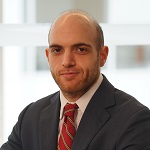 Joshua Kresh, Interim Executive Director
Joshua Kresh, Interim Executive Director
Direct Dial: (703) 993-8241
Email: jkresh@gmu.edu
Joshua Kresh is the Interim Executive Director of the Center for Intellectual Property x Innovation Policy (C-IP2) at George Mason University, Antonin Scalia Law School. He was previously an Associate with DLA Piper in Washington, D.C., where he practiced patent litigation. Joshua received his law degree with honors from The George Washington University Law School, and he holds master’s and bachelor’s degrees in computer science from Brandeis University. Joshua is the Chair of AIPLA’s New Lawyers Committee and Co-Mentoring Chair of the Giles Rich American Inn of Court, and he is a registered patent attorney with the U.S. Patent and Trademark Office. He previously served on the Intellectual Property Committee for the U.S. Court of Federal Claims Advisory Council.
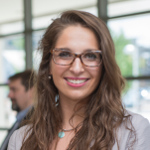 Kristina Pietro, Director of Operations and Events
Kristina Pietro, Director of Operations and Events
Direct Dial: (703) 993-8177
Email: kpietro@gmu.edu
Kristina Pietro joined C-IP2 in November of 2013. Prior to joining C-IP2, Kristina was a Meetings Coordinator for Association Innovation Management, a scientific association management company. Kristina is a 2012 graduate of George Mason University, earning a B.A. in Communications and Public Relations.
Mary Clare Durel, Program and Communications Coordinator
Direct Dial: (703) 993-8743
Email: mdurel@gmu.edu
Mary Clare Durel is a graduate of George Mason University and joined C-IP2 in 2019.
 Professor of Law; Faculty Advisor & Senior Scholar
Professor of Law; Faculty Advisor & Senior Scholar
Founder & Executive Director, Music Ecosystems Institute, Washington, D.C. USA
Direct Dial: (703) 993-8937
Email: soconn3@gmu.edu
Seán O’Connor’s research and practice focus on intellectual property and business law for commercializing innovation in technology and arts. Professor O’Connor received their law degree from Stanford Law School, a master’s degree in philosophy from Arizona State University, and a bachelor’s degree in history from the University of Massachusetts, Boston. Before graduate school they were a singer-songwriter and rock band front person with two DIY albums that received local airplay in the Northeast. They are currently serving as Editor of The Oxford Handbook of Music Law & Policy (Oxford University Press) and of 5G and Beyond: Intellectual Property and Competition Policy in the Internet of Things (forthcoming Cambridge University Press 2023) (with Jonathan Barnett).
 Chief Judge Susan G. Braden (Ret.), Jurist in Residence
Chief Judge Susan G. Braden (Ret.), Jurist in Residence
Chief Judge Susan G. Braden is Jurist in Residence and a member of the Advisory Board at C-IP2.
From July 2003-April 2019, Judge Braden served on the United States Court of Federal Claims, which has exclusive jurisdiction over claims against the federal government for money damages, including those concerning patent and copyright infringement and government contracts. In March 2017, she was designated as Chief Judge. During her tenure, she issued 456 precedential opinions awarding over $1 billion.
Prior to joining the bench, Judge Braden litigated complex cases in federal trial and appellate courts, both in private practice and on behalf of the Antitrust Division of the Department of Justice. Her work in intellectual property law received favorable notice in the New York Times, Wall Street Journal and was featured in Interfaces on Trial, Intellectual Property In the Global Software Industry.
Following her retirement, she was appointed as a Public Member of the Administrative Conference of the U.S., the Advisory Board of the Washington Legal Foundation, the Board of Directors of the United Inventors Association, and as a Jurist In Residence at the Center for Intellectual Property x Innovation Policy (C-IP2) at George Mason University, Antonin Scalia Law School. In 2020, she was appointed by the Secretary of Commerce to serve a three-year term on USPTO’s Private Patent Advisory Committee, where she is Co-Chair of the Legislative Subcommittee and a Member of the Artificial Intelligence and IT and Outreach: International & Regional Office Subcommittees. In addition, she is one of ten individuals appointed by the U.S. Trade Representative to serve for a three-year term to represent the U.S. in disputes arising under the U.S. States-Mexico-Canada trade agreement. She also continues as a Judicial Advisor to the American Law Institute’s RESTATEMENT OF COPYRIGHT LAW project. In 2021, Judge Braden was named by the World IP Forum as one of the most influential women in intellectual property law.
Judge Braden currently serves on the Board of Directors of two privately held companies that create and sell computer software and artificial intelligence. In addition, she on the Board of a major construction company based in Washington, D.C. Judge Braden is also a member of the American Arbitration Association’s M&A, Intellectual Property/Technology, and Large Complex Commercial Panels and serves as an Arbitrator, Mediator, and Corporate Monitor for FEDARB.
Judge Braden received a B.A. from Case Western Reserve University and a J.D. from the School of Law. In addition, she attended Post-Graduate Courses and the Program on Negotiation at Harvard Law School and graduated from Georgetown University Business Administration Program.
 Sandra Aistars, Senior Fellow for Copyright Research and Policy & Senior Scholar
Sandra Aistars, Senior Fellow for Copyright Research and Policy & Senior Scholar
Direct Dial: (703) 993-8158
Email: saistars@gmu.edu
Sandra Aistars is Senior Fellow for Copyright Research and Policy and a Senior Scholar at the Center for Intellectual Property x Innovation Policy (C-IP2). She is also a Clinical Professor at George Mason University Antonin Scalia Law School and leads the law school’s Arts & Entertainment Advocacy Program. Professor Aistars has over twenty years of advocacy experience on behalf of copyright and other intellectual property owners. She has served on trade missions and been an industry advisor to the Department of Commerce on intellectual property implications for international trade negotiations; worked on legislative and regulatory matters worldwide; frequently testified before Congress and federal agencies regarding intellectual property matters; chaired cross-industry coalitions and technology standards efforts; and is regularly tapped by government agencies to lecture in U.S. government-sponsored study tours for visiting legislators, judges, prosecutors, and regulators.
Immediately prior to joining Scalia Law, Professor Aistars was the Chief Executive Officer of the Copyright Alliance – a nonprofit, public interest organization that represents the interests of artists and creators across the creative spectrum. While at Scalia Law, she continues to collaborate with the Copyright Alliance as a member of its Academic Advisory Board. Professor Aistars currently serves on the boards of the Washington Area Lawyers for the Arts (WALA) and the Howard Intellectual Property Program (HIPP), and she has previously served as trustee of the Copyright Society of the USA (CSUSA). Professor Aistars has also previously served as Vice President and Associate General Counsel at Time Warner Inc. She began her legal career in private practice at Weil, Gotshal and Manges LLP.
 Olufunmilayo B. Arewa, Senior Fellow for Entrepreneurship & Senior Scholar
Olufunmilayo B. Arewa, Senior Fellow for Entrepreneurship & Senior Scholar
Direct Dial: (703) 993-8692
Email: oarewa@gmu.edu
Olufunmilayo B. Arewa is Professor of Law at George Mason University Antonin Scalia Law School and Senior Fellow for Entrepreneurship and a Senior Scholar at C-IP2. Professor Arewa’s research focuses on technology, the creative industries, business law, accounting, entrepreneurship, comparative law, and Africana studies. Prior to becoming a law professor, she practiced law in the technology startup arena in Silicon Valley, New York, and Boston. She was a Visiting Lecturer at the Center for Afro-American and African Studies (CAAS) at the University of Michigan and a Foreign Service Officer in the U.S. Department of State. In 2019, she was a Fellow at the Käte Hamburger Center for Advanced Study in the Humanities at Universität Bonn for a research project entitled Disruptive Technologies, Digital Colonialism, and the Construction of Commercial Law in Africa. In 2015, she received a German Academic Exchange Service (DAAD) Faculty Visit Research Grant at Humboldt-Universität zu Berlin for a research project entitled Cultural, Legal, and Business Considerations in the Diffusion of Jazz in Germany, a project connected to her forthcoming book Curating Black Culture: Music, Ownership, and Commodification, which examines business, legal, and cultural contexts of the global spread of African American influenced musical forms. Her 2021 book, Disrupting Africa: Technology, Law & Development (Cambridge University Press), won the ISA 2022 STAIR Book Award, given annually for the best book that develops interdisciplinary perspectives on how science, technology and art permeate international politics. Professor Arewa is a member of the American Law Institute. In addition to writing about music, Professor Arewa studies classical voice.
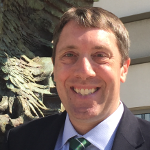 Eric Claeys, Senior Fellow for Scholarly Initiatives & Senior Scholar
Eric Claeys, Senior Fellow for Scholarly Initiatives & Senior Scholar
Direct Dial: (703) 993-8247
Email: eclaeys@gmu.edu
Eric R. Claeys is the Senior Fellow for Scholarly Initiatives and a Senior Scholar at C-IP2. He is Professor of Law at the Antonin Scalia Law School, George Mason University. Professor Claeys is visiting Harvard Law School in spring of 2018, and he was a visiting fellow in spring of 2017 at his alma mater, Princeton University, in the Politics Department’s James Madison Program for American Ideals and Institutions. Professor Claeys is also a member of the American Law Institute and an advisor to the Restatement (Fourth) of Property. Professor Claeys writes on the influence of theories of labor and flourishing on property and intellectual property. He has written on trade secrecy, remedies for IP infringement, and flourishing-based justifications for IP rights. Professor Claeys’s scholarly articles may be downloaded here.
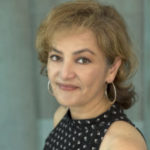 Emily Michiko Morris, Senior Fellow for Life Sciences & Scholar
Emily Michiko Morris, Senior Fellow for Life Sciences & Scholar
Direct Dial: (330) 972-6468
Email: emichikomorris@uakron.edu
David L. Brennan Endowed Chair, Associate Professor, and Associate Director of the Center for Intellectual Property Law & Technology, University of Akron School of Law
Emily Michiko Morris is the Senior Fellow for Life Sciences and a Scholar and Edison Fellow at C-IP2. An experienced teacher and researcher specializing in patent law, particularly as it relates to biotechnology and university research, Prof. Morris is also an expert on regulatory issues related to the pharmaceutical industry. Her research focuses on comparative law and comparative intellectual property law as well.
Professor Morris’ work on patentable subject matter, the Hatch-Waxman Act, and the Bayh-Dole Act, patent claim construction and scope, international IP agreements, and the discriminatory effects of IP registration has been published in books and leading journals, such as the CONNECTICUT LAW REVIEW, the WASHINGTON LAW REVIEW, the STANFORD TECHNOLOGY LAW REVIEW, and the HARVARD JOURNAL OF GENDER AND LAW. Professor Morris also is the recipient of numerous grants and awards, including a three-year, $250,000 fellowship as an Eastern Scholar at the Shanghai University of Political Science and Law, where she lived and worked for a year as a visiting professor. She has been invited to speak at conferences and teach at universities all over the world, including China, Egypt, South Korea, Israel, Switzerland, and Vietnam.
Professor Morris has taught a variety of courses in intellectual property law, law and medicine, and comparative law as a Visiting Associate Professor at the University of Maine School of Law, an Associate Professor at the Indiana University Robert H. McKinney School of Law, a Visiting Associate Professor at the Chicago-Kent College of Law, and as an adjunct assistant professor and Humphrey Fellow in Law and Economic Policy at the John M. Olin Center for Law and Economics, University of Michigan Law School. Before joining academia, Professor Morris earned her A.B. from Harvard University and her J.D. from the University of Michigan Law School, where she was an articles editor on the Michigan Law Review. Following graduation from law school, Professor Morris clerked for the Honorable Bruce M. Selya on the First Circuit Court of Appeals and practiced for three years as an associate in the Issue & Appeals group in the Washington D.C. of Jones Day.
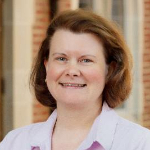 Kristen Osenga, Senior Fellow for Innovation Policy & Senior Scholar
Kristen Osenga, Senior Fellow for Innovation Policy & Senior Scholar
Direct Dial: (804) 289-8112
Email: kosenga@richmond.edu
Kristen Osenga joined C-IP2 as a Senior Scholar in 2014 and as Senior Fellow for Innovation Policy in Spring 2023. She is Associate Dean of Academic Affairs and the Austin E. Owen Research Scholar & Professor of Law at University of Richmond School of Law, where she teaches and writes in the areas of intellectual property, patent law, law and language, and legislation and regulation. Her scholarship has focused on patent eligible subject matter, commercialization of patented innovation, and the intersection of law and linguistics in patent claim construction, among other aspects of patent law. Her scholarly articles can be downloaded here. Dean Osenga is a frequent speaker at symposia on patent law and intellectual property and has made numerous presentations to academic, bar, and industry audiences. Prior to joining academia, she practiced patent law and clerked for Judge Richard Linn of the United States Court of Appeals for the Federal Circuit.
 Kristina M. L. Acri, née Lybecker, Senior Scholar
Kristina M. L. Acri, née Lybecker, Senior Scholar
Direct Dial: (719) 389-6445
Email: kacri@coloradocollege.edu
Dr. Kristina M. L. Acri née Lybecker is a Senior Scholar at C-IP2 and is the John L. Knight Chair of Economics and Professor of Economics at Colorado College. She received her B.A. from Macalester College, double majoring in Economics and Latin American Studies. She received her Ph.D.in Economics from the University of California, Berkeley. Kristina’s research analyzes the difficulties of strengthening intellectual property rights protection in developing countries, specifically in the context of the pharmaceutical and environmental technology industries. Recent projects also address the challenges of counterfeit pharmaceuticals during the COVID-19 pandemic, alternatives to the existing patent system, the balance between pharmaceutical patent protection and access to essential medicines, the markets for jointly produced goods such as blood and blood products, and the role of international trade agreements in incentivizing innovation. Kristina has testified in more than a dozen states on the economics of parallel trade in medicines and the risks of biopharmaceutical counterfeiting. In 2016 she was awarded the Thomas Edison Innovation Fellowship by the Center for the Protection of Intellectual Property (CPIP) at the Antonin Scalia Law School, George Mason University. She has also worked with the US Food and Drug Administration, Reconnaissance International, PhRMA, IFPMA, the National Peace Foundation, the OECD, the Partnership for Safe Medicines, the Fraser Institute, and the World Bank, on issues of innovation, biopharmaceutical policymaking, international trade, and corruption.
 Jonathan Barnett, Senior Scholar
Jonathan Barnett, Senior Scholar
Direct Dial: (213) 740-4792
Email: jbarnett@law.usc.edu
Jonathan Barnett is a Senior Scholar at C-IP2. He is a Professor of Law at the University of Southern California, Gould School of Law, where he is also Director of the Media, Entertainment and Technology Law Program. He specializes in intellectual property, antitrust and corporate law, with a focus on the transactional functions of intellectual property rights in information technology and content markets. Barnett has published in the Harvard Law Review, Yale Law Journal, Journal of Institutional Economics, Harvard Journal of Law & Technology, Berkeley Technology Law Journal, Journal of Corporation Law, Journal of Legal Studies, Review of Law & Economics, Jurimetrics and other scholarly journals. His scholarly articles can be downloaded here and here.
Most recently, Professor Barnett’s research has focused on the empirical and historical study of standard-setting, patent pools and licensing structures in information technology and other innovation markets. In 2018, Professor Barnett discussed the Supreme Court case, Oil States Energy Services, LLC v. Greene’s Energy Group, LLC, in a piece that appeared in Regulation, published by the Cato Institute. In 2017, Professor Barnett was the co-lead author in an amicus brief signed by 44 law and economics scholars in the Supreme Court case, Impression Products, Inc. v. Lexmark International, Inc.
Professor Barnett joined USC Law in 2006 and was a visiting professor at New York University School of Law in fall 2010. Prior to academia, Barnett practiced corporate law as a senior associate at Cleary Gottlieb Steen & Hamilton LLP in New York, specializing in private equity and mergers and acquisitions transactions. He was also a visiting assistant professor at Fordham University School of Law in New York. A graduate of the University of Pennsylvania, he received a MPhil from Cambridge University and a JD from Yale Law School.
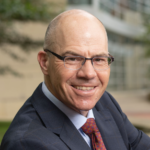
Daniel R. Cahoy, Senior Scholar
Email: drc13@psu.edu
Robert G. and Caroline Schwartz Professor, The Pennsylvania State University’s Smeal College of Business; Research Director, Center for the Business of Sustainability
Dan Cahoy is a Senior Scholar at C-IP2, and he specializes in the teaching and research of intellectual property law, as well as general business law concepts. He has published numerous articles in academic law journals on topics such as IP and alternative energy policy, business and human rights, FDA regulatory policy, reforming the U.S. patent system, the use of contracts to extend limited intellectual property rights, and the use of experimental economics to improve jury studies. Professor Cahoy served on the Editorial Board of the peer-reviewed American Business Law Journal from 2005-2010, including as the Editor-in-Chief, and is a Past President of the Academy of Legal Studies in Business. In 2021, Professor Cahoy was awarded the Milton S. Eisenhower Award for Distinguished Teaching, Penn State’s highest award for tenured faculty members engaged in undergraduate instruction.
Expertise
Professor Cahoy’s current research concerns issues such as the intersection of intellectual property enforcement and human rights, patent ownership in alternative energy technologies, and mechanisms for increasing the relevance of patent landscapes. In general, he has an interest in pursuing projects related to the legal and regulatory rules that create economic incentives for desirable business behavior. Professor Cahoy is a patent attorney, licensed to practice before the United States Patent and Trademark Office, and is admitted to the New York State Bar and several federal courts, including the United States Court of Appeals for the Federal Circuit.
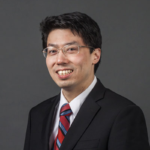 Tun-Jen Chiang, Senior Scholar
Tun-Jen Chiang, Senior Scholar
Direct Dial: 703-993-9868
Email: tchiang2@gmu.edu
C-IP2 Senior Scholar and Professor of Law Tun-Jen Chiang arrived at the Antonin Scalia Law School, George Mason University after having been an associate with business litigation firm Quinn Emanuel Urquhard Oliver & Hedges, LLP, in Silicon Valley, California, since 2005. Prior to this, he was a law clerk to Judge Timothy B. Dyk of the Federal Circuit.
Professor Chiang was awarded his JD with honors by the University of Chicago Law School, where he was comment editor of the law review and a member of Order of the Coif. He also received a Bachelor of Laws and a Bachelor of Commerce from the University of Melbourne in Australia. His primary research interest is in patent law.
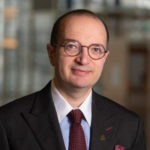 Gregory Dolin, Senior Scholar
Gregory Dolin, Senior Scholar
Email: gdolin@ubalt.edu
Gregory Dolin is a Senior Scholar at C-IP2 and a Professor of Law at the University of Baltimore School of Law. Professor Dolin’s scholarship centers on patent law with a specific focus on how the patent regime affects innovation, especially in bio-pharmaceutical areas. His work in these areas includes a number of scholarly articles, presentations, amicus briefs, and congressional testimony.
Professor Dolin also serves as a Senior Litigation Counsel for the New Civil Liberties Alliance and sits on the board of directors of the Jewish Coalition for Religious Liberty. He is also a member of the Federalist Society’s Administrative Law & Regulation Practice Group Executive Committee and an adjunct scholar at the Cato Institute’s Robert A. Levy Center for Constitutional Studies.
Between 2020 and 2022, Dolin was on leave from his academic position and served as an Associate Justice of the Supreme Court of the Republic of Palau. During his two years on the Court, then-Justice Dolin published opinions in property, contracts, criminal, administrative, and constitutional law matters.
He has previously served as a member of the Maryland State Advisory Committee to the U.S. Commission on Civil Rights. From 2017 to 2020, Dolin served on the Clifton T. Perkins Center Advisory Board.
Prior to joining the University of Baltimore School of Law, Dolin held visiting appointments in other law schools. He also served as a law clerk to the Hon. Pauline Newman, of the U.S. Court of Appeals for the Federal Circuit and the late Hon. H. Emory Widener Jr., of the U.S. Court of Appeals for the Fourth Circuit. He continues to render service to the Fourth Circuit by representing indigent appellants.
In his spare time, Dolin travels, enjoys museums, opera, translates Russian poetry into English, and consults for various Hollywood shows. He also has a real Russian bear in his office.
 John F. Duffy, Senior Scholar
John F. Duffy, Senior Scholar
Direct Dial: (434) 243-8544
Email: jfduffy@law.virginia.edu
Professor John F. Duffy is a Senior Scholar at C-IP2 and the Samuel H. McCoy II Professor of Law and the Elizabeth D. and Richard A. Merrill Professor of Law at the University of Virginia School of Law. Professor Duffy received an A.B. in physics from Harvard College in 1985 and a J.D. from the University of Chicago in 1989. Prior to entering academics, Professor Duffy clerked for Stephen Williams on the United States Court of Appeals for the D.C. Circuit and for Justice Scalia on the Supreme Court of the United States and also served as an Attorney-Advisor in the Department of Justice’s Office of Legal Counsel.
Professor Duffy is the co-author of a leading casebook on patent law, Patent Law and Policy (6th ed. 2013) (with Robert Patrick Merges) and has published articles on a wide range of regulatory and intellectual property issues in journals such as University of Chicago Law Review, Columbia Law Review, Yale Law Journal, Stanford Law Review, Virginia Law Review, Texas Law Review, Northwestern University Law Review, NYU Law Review, University of Pennsylvania Law Review and the Supreme Court Review. His 2008 article “Are Administrative Patent Judges Unconstitutional?” was covered on National Public Radio (http://www.npr.org/templates/story/story.php?storyId=90245762) and in the New York Times (Adam Liptak, In One Flaw, Questions on Validity of 46 Judges, May 6, 2008, http://www.nytimes.com/2008/05/06/washington/06bar.html). The article subsequently led to the enactment of legislation that restructured the appointment process for patent judges.
Professor Duffy also consults on litigation and has served as counsel for parties or amici in cases such as KSR v. Teleflex, 550 U.S. 398 (2007), Lucent Technologies, Inc. v. Gateway, Inc., 580 F. 3d 1301 (Fed. Cir. 2009), Bilski v. Kappos, 561 U.S. 593 (2010), Ariad Pharmaceuticals, Inc. v. Eli Lilly and Co., 598 F. 3d 1336 (Fed. Cir. 2010) (en banc), TC Heartland. v. Kraft Foods, 137 S.Ct. 1514 (2017), Oil States Energy Services, LLC v. Greene’s Energy Group, LLC, 138 S.Ct. 1365 (2018), and Helsinn v. Teva, 139 S. Ct. 628 (2019).

Joseph Fishman, Senior Scholar
Direct Dial: (615) 322-1819
Email: joseph.fishman@vanderbilt.edu
Joseph Fishman is a Senior Scholar at C-IP2 and Professor of Law at Vanderbilt University Law School. His research focuses on intellectual property, particularly its relationship to creativity and the creative process. He is a recognized expert on music copyright matters. His recent scholarship has covered such legal issues as infringing similarity between songs, the role of expert witnesses in music copyright litigation, judges’ definition of musical originality, and trademark issues related to sound recordings. His work has appeared in leading journals, including the Harvard Law Review, NYU Law Review, and the University of Pennsylvania Law Review. Professor Fishman joined Vanderbilt’s law faculty in fall 2015 after serving as a Climenko Fellow and Lecturer in Law at Harvard Law School. He earned his A.B. magna cum laude from Harvard College with a joint major in music and religion, his M.Phil. in musicology from the University of Cambridge, and his J.D. cum laude from Harvard Law School. After law school, he was a law clerk for Judge Jeffrey R. Howard of the U.S. Court of Appeals for the First Circuit and for Judge Miriam Goldman Cedarbaum of the U.S. District Court for the Southern District of New York. He practiced as an associate at Jenner & Block in the firm’s content, media and entertainment group, where he specialized in litigation involving the music industry, before entering the legal academy.
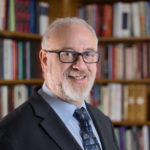 Jon M. Garon, Senior Scholar
Jon M. Garon, Senior Scholar
Email: Garon@nova.edu
Jon M. Garon is a Senior Scholar at C-IP2 and Professor of Law and Director of the Intellectual Property, Cybersecurity, and Technology Law program at Nova Southeastern University Shepard Broad College of Law, teaching Constitutional Law, Contracts, Privacy Law, Entertainment Law, and many other courses. He is a nationally recognized authority on entertainment law, copyright, information privacy, technology regulation, and free speech. He has published over 50 books, book chapters, and academic articles, and he has presented at more than 200 programs. A Minnesota native, he received his bachelor’s degree from the University of Minnesota in 1985 and his juris doctor degree from Columbia University School of Law in 1988.
Professor Garon served as dean for NSU’s Shepard Broad College of Law 2014-2020, providing strategic leadership on programming, curriculum, enrollment management, marketing, and finance. Prior to joining Nova Southeastern University in 2014, Garon was the inaugural director of the Northern Kentucky University Salmon P. Chase College of Law, Law + Informatics Institute, serving from 2011-2014. The Law + Informatics Institute works to integrate specialized courses and training on technology and information systems across legal disciplines. He also served as dean and professor of law at Hamline University School of Law in St. Paul, Minnesota and interim dean of the Graduate School of Management from 2005 to 2006. Before Hamline, Dean Garon taught Entertainment Law and Copyright at Franklin Pierce Law Center in Concord, New Hampshire and Western State University College of Law in Orange County, California.
Professor Garon’s recent and forthcoming books include Parenting for the Digital Generation – The Parent’s Guide to Digital Education and the Online Environment (2021 Rowman & Littlefield); Law Professor’s Desk Reference (2021 Carolina Academic Press); Intellectual Property Law and Practice: A Contemporary Approach (2022 West Academic); A Short and Happy Guide to Privacy and Cybersecurity Law (2020 West Academic); The Independent Filmmaker’s Law & Business Guide to Financing, Shooting, and Distributing Independent and Digital Films (A Cappella Books, 3d Ed. 2021); Entertainment Law and Practice (Carolina Academic Press 2020); The Entrepreneur’s Intellectual Property & Business Handbook (2d. Ed. Manegiere Publications 2018); and The Pop Culture Business Handbook for Cons and Festivals (Manegiere Publications 2017).
Professor Garon is also the author of Burn Rate (2019), a cybercrime mystery novel.
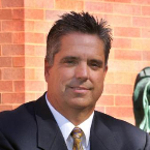
Chris Holman, Senior Scholar
Direct Dial: (816) 235-2384
Email: holmancm@umkc.edu
Chris Holman joined C-IP2 as a Senior Scholar in 2014, and he served as the Senior Fellow for Life Sciences at C-IP2 from August 2020 though August 2021. He is a Professor at the University of Missouri-Kansas City School of Law, where his primary research focus lies at the intersection of intellectual property and biotechnology. He has published numerous articles in law reviews and scientific publications such as Science, Cell, and Nature Biotechnology, and has authored amicus briefs in a number of important biotechnology patent cases at the Supreme Court and Federal Circuit. In 2008 he was awarded the Daniel L Brenner Faculty Publishing Award for an influential law review article on human gene patent litigation. Prior to becoming a law professor, Holman served as vice-president of intellectual property and patent counsel at several Silicon Valley biotechnology companies and worked as an associate at a major intellectual property law firm. He was also a tenure-track chemistry professor in the California State University system.
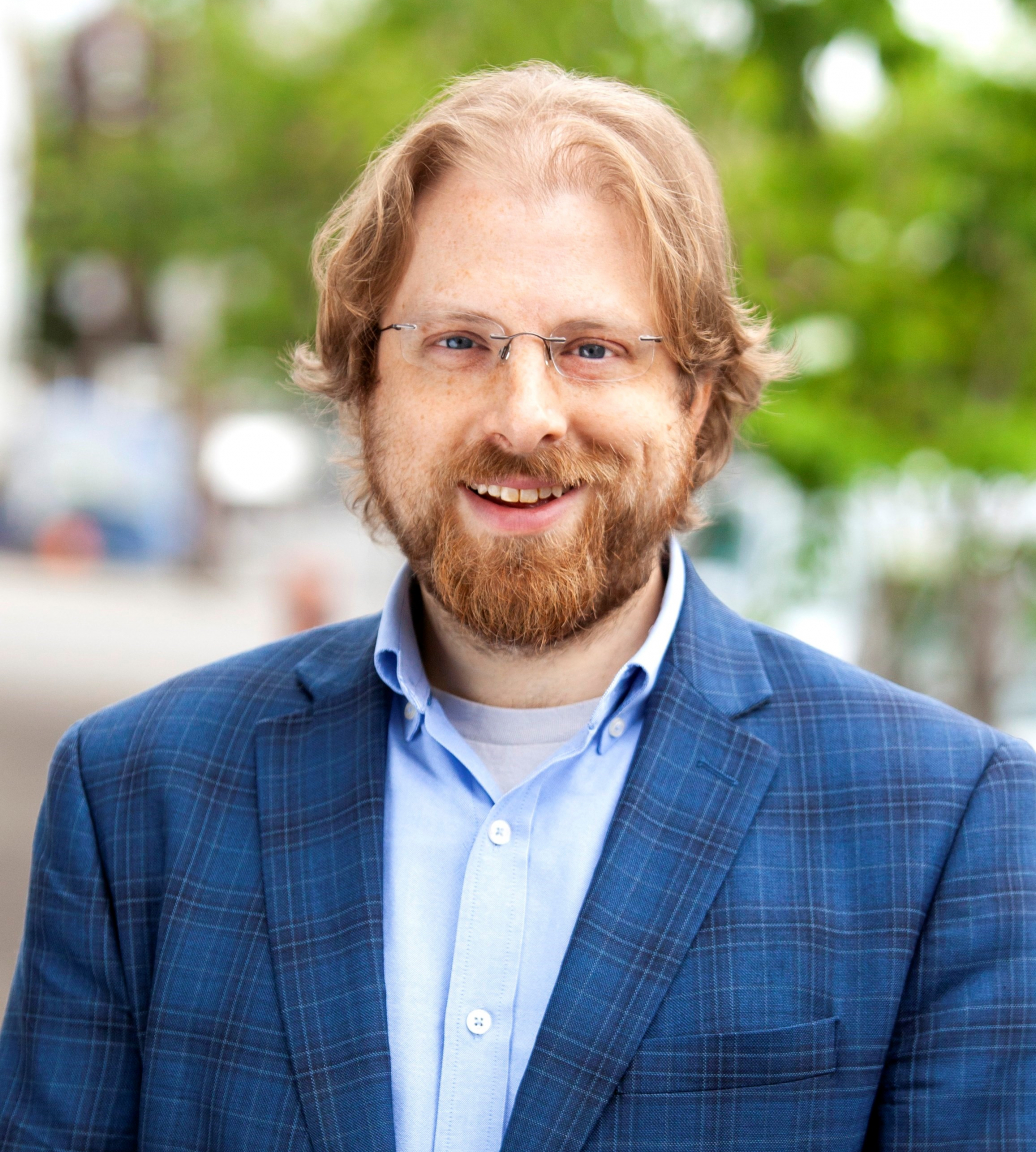
Justin (Gus) Hurwitz, Senior Scholar
Justin (Gus) Hurwitz is a C-IP2 Senior Scholar and is a Senior Fellow and Academic Director of the Center for Technology, Innovation & Competition at the University of Pennsylvania Carey Law School.
Gus Hurwitz’s work builds on his background in law, technology, and economics to consider the interface between law and technology and the role of regulation in high-tech industries.
He is Director of Law & Economics Programs at the International Center for Law & Economics (ICLE), a think tank based in Portland, Oregon, where he directs its law and economics-focused research program and helps to translate academic research into applied policy issues.
He also is, or has been, affiliated with the Classical Liberal Institute at New York University School of Law, the National Security Institute at George Mason University, and the American Enterprise Institute (AEI).
Hurwitz has expertise in telecommunications law and technology, including data- and cybersecurity and was recognized as a Cyber Security & Data Privacy Trailblazer by The National Law Journal. His work has appeared in numerous law reviews and journals across the country. It has also been cited by the Federal Communications Commission (FCC), Federal Trade Commission (FTC), federal district and circuit court judges, and U.S. senators, and he has spoken or testified before the committees of the U.S. Senate and House of Representatives, FCC, FTC, the U.S. Army’s 7th Signal Command, and German and Colombian competition regulators.
He was previously a full professor and founding director of the Governance & Technology Center at the University of Nebraska, prior to which he was the inaugural research fellow at the Center for Technology, Innovation & Competition (CTIC). From 2007 to 2010, he was a trial attorney with the U.S. Department of Justice Antitrust Division in the Telecommunications and Media Enforcement Section.
Before attending law school, Hurwitz worked at Los Alamos National Lab and interned at the Naval Research Lab. During this time his work was recognized by the Federal Laboratory Consortium, Los Alamos National Lab, IEEE & ACM, Corporation for Education Network Initiatives in California, R&D Magazine, and even the Guinness Book of World Records.
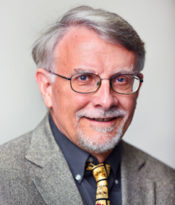 Steven D. Jamar, Senior Scholar
Steven D. Jamar, Senior Scholar
Email: stevenjamar@gmail.com
Professor Jamar is a Senior Scholar at C-IP2. He formally retired from full-time teaching at the end of the 2020-21 academic year and is now professor emeritus at Howard University School of Law.
Professor Jamar joined the HUSL faculty in 1990 as Director of the Legal Reasoning, Research, & Writing Program, a position he held from 1990 to 2002. During that time he was a recognized national leader in legal writing instruction, serving as president of the Legal Writing Institute in 1997-98 and in other leadership capacities. He has taught a wide variety of courses at HUSL and elsewhere including among others Constituional Law, Copyrights, AI & the Law, Introduction to Intellectual Property, International Law of Human Rights, IP in International Business Transactions, Contracts, Licensing, UCC, Computer Law, LRRW I & II, Drafting, Civil Litigation Clinic, and ADR.
Prof. Jamar served as the Associate Director of the Howard Intellectual Property Program (HIPP) from 2002 to 2021. Prof. Lateef Mtima is the HIPP Director. HIPP addresses the relationship between intellectual property and social justice and works to improve the opportunities for HUSL students to enter IP practice. HIPP performs its mission in a number of ways including supporting relevant scholarship, involving HUSL students in IP courses and issues, designing the IP curriculum, sponsoring student internships, CLE instruction in IP to practicing attorneys, and advocacy on IP issues with a significant social justice component.
Prof. Jamar is the Associate Director of the Institute for Intellectual Property and Social Justice, Inc., (IIPSJ), an NGO dedicated to advancing access, inclusion, and empowerment in IP-related matters for traditionally marginalized and excluded people.
Prof. Jamar’s scholarly work is wide ranging. His more recent work has concentrated on various aspects of social justice and intellectual property including the relationship of intellectual property law and administration to international human rights; copyright in the social networking context; the relationships among IP, social justice, entrepreneurship, and economic empowerment; and the importance of a social justice underpinning for an IP Institute. He is the author of a Constitutional Law coursebook, Constitutional Law: Power, Liberty, Equality (Aspen/Wolters Kluwer 2017) designed more for students than scholars.
Please visit Professor Jamar’s website to learn more about his professional career and scholarship.
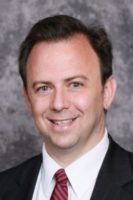 F. Scott Kieff, Senior Scholar
F. Scott Kieff, Senior Scholar
Direct Dial: (202) 994-4644
Email: skieff@law.gwu.edu
The Honorable F. Scott Kieff is a Senior Scholar at C-IP2 and the Fred C. Stevenson Research Professor at GW Law School. Formerly a Commissioner of the US International Trade Commission, he was nominated by President Obama and confirmed unanimously by the Senate. He also has served as a senior government advisor during the Bush, Obama, and Trump Presidential Administrations on national security and economics. Through Kieff Strategies LLC he brings together fellow academics and former government officials to help firms in technology, finance, business, and law by conducting investigations and crisis management and providing strategic consulting, expert advice and testimony, as well as neutral services including mediation, arbitration, and compliance monitoring. A former law clerk to U.S. Circuit Judge Giles S. Rich, and graduate of MIT and Penn Law School, he was elected to the European Academy of Sciences and Arts in 2012.
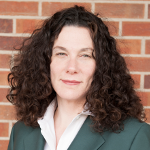 Erika Lietzan, Senior Scholar
Erika Lietzan, Senior Scholar
Direct Dial: 573-882-6753
Email: lietzane@missouri.edu
Erika Lietzan is a Senior Scholar at C-IP2. She is William H. Pittman Professor of Law & Timothy J. Heinsz Professor of Law at the University of Missouri–Columbia, where she teaches and writes in the areas of drug and device regulation, intellectual property, and administrative law. Her primary research focus lies at the intersection of intellectual property law and FDA regulation of medical products. Her scholarship has focused on the new drug research and development paradigm and its impact on incentives to innovate, innovation and competition in the marketplace for biological medicines, the incentive for generic drug applicants to challenge innovator patents, data exclusivity for drug and biological medicine innovators, and mandatory public disclosure of clinical data in drug applications, among other issues. Her articles can be downloaded here.
Professor Lietzan brings to her scholarship and teaching eighteen years of private practice experience, eight of them as a partner at Covington & Burling in Washington, DC. She received her law degree from Duke University, a master’s degree in history from UCLA, and bachelor’s degree in history from the University of North Carolina.
 Daryl Lim, Senior Scholar
Daryl Lim, Senior Scholar
Direct Dial: (717) 241-3537
Email: dfl5478@psu.edu
Daryl Lim is a Senior Scholar at C-IP2, the H. Laddie Montague Jr. Chair in Law at Penn State Dickinson Law, and co-hire at the Institute of Computational and Data Sciences at Penn State University. He also serves as associate dean for research and innovation and founding director of the Intellectual Property (IP) and Innovative Initiative.
Professor Lim is an award-winning author, observer, and commentator of national and global trends in IP and competition policy and how they influence and are influenced by law, technology, economics, and politics. He helps policy makers, attorneys, corporate counsel, scholars, and the public make sense of the world around them. He is a founding member of the Global IP Alliance and its local chapters in Pennsylvania and Illinois. In addition, he serves as Co-Chair of the University Education Committee in the US IP Alliance. He consults internationally on various IP and antitrust issues.
His publications feature in leading flagship and specialty law reviews. In addition, he serves as a peer reviewer for the Yale Law Journal, Journal of Empirical Legal Studies, Journal of Antitrust Enforcement (Oxford University Press), the National Academy of Inventors, Cambridge University Press, John Wiley & Sons, Carolina Academic Press, and the International Review of Intellectual Property and Competition Law.
Website: https://lawdaryl.com
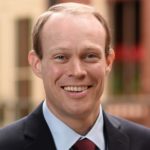 Adam MacLeod, Senior Scholar
Adam MacLeod, Senior Scholar
Email: amacleod@stmarytx.edu
Adam MacLeod is a Senior Scholar at C-IP2 and Professor of Law at St. Mary’s University School of Law. He has been a Visiting Fellow in the James Madison Program in American Ideals and Institutions at Princeton University, a Research Fellow of the Center for Religion, Culture, and Democracy, and a Thomas Edison Fellow in C-IP2. He is co-editor of the fourth edition of Christie and Martin’s Jurisprudence (West Academic 2020) and author of Property and Practical Reason (Cambridge University Press 2015) and other books.
Professor MacLeod writes and speaks about the foundations of private law and private ordering, especially in property and intellectual property. He is an instructor in the James Madison Program’s graduate seminar on the Moral Foundations of Law. He contributes to conferences, colloquia, and consultations at research universities around the world. His scholarship has appeared in peer-reviewed journals such as the Modern Law Review and in top law journals such as the Harvard Journal of Law & Public Policy and the Notre Dame Law Review. And he contributes to journals of news and public opinion such as the Washington Times, National Review Online, Public Discourse, and Law & Liberty.
Professor MacLeod received his B.A., summa cum laude, from Gordon College and his J.D., magna cum laude, from the University of Notre Dame Law School. After law school, he served as law clerk to Chief Justice Christopher Armstrong and Justice Benjamin Kaplan of the Massachusetts Appeals Court and to Chief Judge Lewis Babcock of the United States District Court for the District of Colorado. He practiced law in the Boston area and has held an appointment as a special Deputy Attorney General of Alabama. An Operational Auxiliarist in the United States Coast Guard, he has served as a staff officer at the flotilla, division, and district levels. Professor MacLeod lives in Montgomery, Alabama with the joys of his life, his wife and daughters.
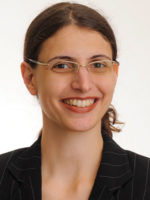 Irina D. Manta, Senior Scholar
Irina D. Manta, Senior Scholar
Direct Dial: (516) 463-5865
Email: Irina.D.Manta@hofstra.edu
Professor Manta is a Senior Scholar at C-IP2. Her research spans legal issues involving intellectual property, torts, the Internet, privacy, national security, and immigration. She has a particular interest in the intersection between the law and the social sciences, and especially psychology and economics. Professor Manta has published or has forthcoming work in the New York University Law Review, Vanderbilt Law Review, Emory Law Journal, William & Mary Law Review, Iowa Law Review, North Carolina Law Review, Alabama Law Review, Boston College Law Review, Ohio State Law Journal, and Harvard Journal of Law & Technology, among others. She is also a co-author for a textbook on criminal law issues in intellectual property and blogs for The Volokh Conspiracy. In 2014, she received the Lawrence A. Stessin Prize for Outstanding Scholarly Publications, which is awarded to two junior faculty members across all disciplines at Hofstra University. Professor Manta has given well over a hundred talks nationally and internationally, and in 2018 served as a Visiting Scholar at Waseda University in Tokyo, Japan.
Before joining the law school faculty in 2012, Professor Manta was an Assistant Professor of Law at the Case Western Reserve University School of Law. She was a Bigelow Teaching Fellow and Lecturer in Law at the University of Chicago Law School from 2007 to 2009. Professor Manta has also served on the faculties of Fordham Law School, the Benjamin N. Cardozo School of Law, Brooklyn Law School, The George Washington University Law School, and the University of Arkansas at Little Rock William H. Bowen School of Law. She clerked for Judge Morris S. Arnold on the U.S. Court of Appeals for the Eighth Circuit for the 2006-2007 term.
While earning her J.D. at Yale Law School, Professor Manta was the grand prize winner of the Foley & Lardner LLP Intellectual Property Writing Competition. She also served as tributes editor of the Yale Law Journal, articles editor of the Yale Law & Policy Review, and editor of the Yale Journal on Regulation. She graduated magna cum laude from Yale University with a B.A. in psychology. Her writings have appeared in the Washington Post, Scientific American, USA Today, Chicago Tribune, Salon, Newsweek, Yahoo! News, International Business Times, and The Conversation, as well as on SCOTUSBlog.
During her time in the academy, Professor Manta has taught Torts, Property, Intellectual Property Survey, Trademarks, Copyright, International Intellectual Property, The Criminal Law of Intellectual Property and Information, Intellectual Property Colloquium, Law & Social Science, and a variety of other intellectual property courses.
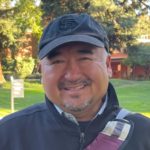 Michael Mireles, Senior Scholar
Michael Mireles, Senior Scholar
Direct Dial: (916) 739-7154
Email: mmireles@pacific.edu
Professor Michael Mireles is a Senior Scholar at C-IP2. He is excited to learn from C-IP2 professors and attorneys—especially those with a different viewpoint concerning IP than his own. Professor Mireles has taught more than 12 different courses and currently teaches intellectual property law courses, Property, Wills & Trusts, and Cybersecurity Law at University of the Pacific, McGeorge School of Law in Sacramento, California. Professor Mireles’ research interests concern intellectual property law, university technology transfer and cybersecurity law. He has authored or coauthored numerous law review publications and book chapters. He has also co-authored an intellectual property casebook supplement, a cybersecurity law casebook in its second edition and two cybersecurity law hornbooks. He has recently given presentations related to access to and protection of medicines and other technology at numerous institutions, including the Confederation of Indian Industry, Copenhagen Business School – CBS Law, Max Planck Institute for Innovation and Competition, Stanford Law School, Beijing International Studies University, Wake Forest University School of Law, VIT University Law School in Chennai, India, and the American Association of Law Schools Annual Meeting. He recently co-organized an international conference at McGeorge on pharmaceuticals. He has also co-organized four conferences in India and one in Denver concerning intellectual property and technology. Mireles has been a guest blogger on the IP Kat blog and regularly blogs on the IP Finance blog. He has taught intellectual property law courses at universities or research institutions in Austria, Germany and China.
Mireles is an advisor to the Intellectual Property Student Association, and co-advisor to the Asian Pacific American Law Students Association and the Latinx Law Student Association at McGeorge. He is a past co-chair of the Federal Circuit Bar Association Diversity Committee and former president of the Asian Bar Association of Sacramento. He has served as a reviewer for universities, journals and academic presses, including Routledge and Oxford University Press. He enjoys volunteering with nonprofits with his children, particularly with the refugee resettlement organization World Relief; and teaches intellectual property classes to local high school students. He is a graduate of University of Maryland, University College (B.S.); University of the Pacific, McGeorge School of Law (J.D.); and George Washington University Law School (LL.M.). He is a former clerk to Judge S. Jay Plager of the U.S. Court of Appeals for the Federal Circuit. He is an avid fan of Star Wars, Dungeons & Dragons, Game of Thrones and Diablo.
 Lateef Mtima, Senior Scholar
Lateef Mtima, Senior Scholar
Email: lmtima@iipsj.org
Lateef Mtima is a Senior Scholar at C-IP2 and a Professor of Law at the Howard University School of Law. After graduating with honors from Amherst College, Professor Mtima received his J.D. degree from Harvard Law School, where he was the co-founder and later editor-in-chief of the Harvard BlackLetter Journal (today the Harvard Journal on Racial and Ethnic Justice). He is admitted to the New York and Pennsylvania bars and has practiced intellectual property, bankruptcy, and commercial law, including a decade in private practice with the former international law firm of Coudert Brothers. Professor Mtima has served as a member of the Advisory Council for the United States Court of Federal Claims, President of the Giles S. Rich Inn of Court for the United States Court of Appeals for the Federal Circuit, a member of the founding Editorial Board for the American Bar Association intellectual property periodical Landslide, a member of the BNA Patent, Trademark & Copyright Journal Advisory Board and the ALI Practical Lawyer Editorial Board, and a Distinguished Libra Visiting Scholar in Residence at the University of Maine School of Law. Professor Mtima is the Founder and Director of the Institute for Intellectual Property and Social Justice (IIPSJ), an accredited NGO member of the World Intellectual Property Organization (WIPO), and which advocates for core principles of socially equitable access, inclusion, and empowerment in the development and implementation of the IP ecosystem.
Professor Mtima is the editor/contributing author of Intellectual Property, Social Justice, and Entrepreneurship: From Swords to Ploughshares (Edward Elgar 2015) and a co-author of Transnational Intellectual Property Law (West Academic 2016). Some of his other publications include The Idea Exclusions in Intellectual Property Law, 28 Texas Intell. Prop. L. J. 343 (2020); IP Social Justice Theory: Access, Inclusion, and Empowerment, 55 Gonzaga L. Rev. 401 (2019/20); Digital Tools and Copyright Clay: Restoring the Artist/Audience Symbiosis, 38 Whittier Law L. Rev. 104 (2018); Copyright and Social Justice in the Digital Information Society: “Three Steps” Toward Intellectual Property Social Justice, 53 Hous. L. Rev. 459 (2015); A Social Justice Perspective on IP, Innovation, Entrepreneurship, Innovation and Entrepreneurship, in Entrepreneurship and Innovation in Evolving Economies: The Role of Law (Edward Elgar 2012); What’s Mine is Mine but What’s Yours is Ours: IP Imperialism, the Right of Publicity, and Intellectual Property Social Justice in the Digital Information Age, 15 S.M.U. Sci. &Tech. L. Rev. 323 (2012); Fulfilling the Copyright Social Justice Promise: Digitizing Textual Information, 55 N.Y.L. Sch. L. Rev. 77 (2010) (quoted in The Authors Guild v. Google Inc., 770 F. Supp. 2d 666, 679, n. 15, (S.D.N.Y. 2011); Copyright Social Utility and Social Justice Interdependence: A Paradigm for Intellectual Property Empowerment and Digital Entrepreneurship, 112 W. Va. L. Rev. 98 (2009); Whom the Gods Would Destroy; Why Congress Prioritized Copyright Protection Over Internet Free Speech and Privacy in Passing the Digital Millennium Copyright Act, 61 Rutgers L. Rev. 627 (2009); So Dark the CON(TU) of Man: The Quest for a Software Derivative Work Right in Section 117, 70 U. Pitt. L. Rev. 1 (2008); and “Tasini and Its Progeny: The New Exclusive Right or Fair Use on the Electronic Publishing Frontier?” 14 Ford. Intell. Prop., Media & Ent. L. J. 369 (2004) (quoted in Greenberg v. National Geographic Society, 533 F.3d 1244, 1264, 1266 (11th Cir. 2008) (dissenting opinion)).
 Loren Mulraine, Senior Scholar
Loren Mulraine, Senior Scholar
Email: loren.mulraine@belmont.edu
Loren Mulraine is a Senior Scholar at C-IP2. He received his B.A. from the University of Maryland, College Park and his J.D. from Howard University School of Law. While at Howard, Professor Mulraine was a merit scholar, earned the Dean’s Excellence Award in Government Contracts and served as lead articles editor of the Howard Law Journal. He began his legal career as a government contracts attorney with the Federal Aviation Administration in Washington, D.C. before relocating to Nashville to practice entertainment law. His legal clients have included Grammy, Dove and Stellar award winners, gold, platinum and multi-platinum selling artists, producers and songwriters, as well as filmmakers, independent labels and management companies.
Before joining the law faculty at Belmont, Professor Mulraine taught for 14 years at Middle Tennessee State University, most recently serving as the Chair of the Department of Recording Industry. He served two non-consecutive terms as interim Associate Dean of the College of Mass Communication at MTSU and has also taught at Oakwood University in Huntsville, Alabama. Professor Mulraine has significant experience as a songwriter and independent gospel artist with four solo recordings, several group projects, and session work which includes the Grammy award-winning Andrae’ Crouch project, Tribute: The Songs of Andrae’ Crouch.
Professor Mulraine is a member of The Recording Academy, Gospel Music Association, American Bar Association, National Bar Association, MEIEA, Leadership Music, Leadership Middle Tennessee, and the Black Entertainment and Sports Lawyers Association.
At Belmont, Professor Mulraine teaches Entertainment Law, Copyright Law, Intellectual Property, Media Law, Film and TV Transactions, Sports Law, and related courses in the Entertainment and Music Business Law curriculum.
 Christopher M. Newman, Senior Scholar
Christopher M. Newman, Senior Scholar
Direct Dial: (703) 993-8131
Email: cnewman2@gmu.edu
Christopher M. Newman is a Senior Scholar at C-IP2 and an Associate Professor of Law at George Mason University Antonin Scalia Law School. His scholarship focuses on property theory and copyright law, with particular emphasis on the conceptual and functional structure of property doctrine and the relationship between tangible and intellectual property. He is currently serving as an Associate Reporter for the American Law Institute’s Restatement (Fourth) of Property project. His areas of teaching include Civil Procedure, Copyright, Trademark, Entertainment Law, and Free Speech. In addition, Professor Newman co-runs the Liberty & Law reading group, which provides a forum for informal discussion among students and faculty based on texts that seek to illuminate difficult questions regarding the relationship between law and liberty.
Professor Newman graduated magna cum laude from the University of Michigan Law School in 1999, where he served as book review editor for the Michigan Law Review and received Michigan’s highest law school award, the Henry M. Bates Memorial Scholarship. He also holds a BA in classical liberal arts awarded by St. John’s College in Annapolis, Maryland. Following law school, Professor Newman clerked for Judge Alex Kozinski on the U.S. Court of Appeals for the Ninth Circuit. From 2000-2007, he was a litigation associate with Irell & Manella LLP in Los Angeles, where he represented clients in disputes involving contracts, business torts, intellectual property, corporate and securities litigation, and appellate matters, as well as pro bono family and criminal law matters. Professor Newman left practice at the beginning of 2007 to serve an Olin/Searle Fellowship in Law at the UCLA School of Law, and from January 2008 until his arrival at Scalia Law served as a research fellow of UCLA’s Intellectual Property Project.
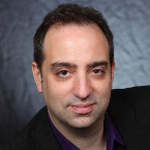 Eric Priest, Senior Scholar
Eric Priest, Senior Scholar
Direct Dial: (541) 346-0414
Email: priest@uoregon.edu
Eric Priest joined C-IP2 as a Senior Scholar in 2014. He is an Assistant Professor at the University of Oregon School of Law, where he teaches and researches in the area of intellectual property law with a focus on copyright law in the information age and creative industry ecosystems in the U.S. and China. Before joining the Oregon Law faculty in 2009, he was a fellow at Harvard Law School’s Berkman Center for Internet & Society working on the NOANK Digital Media Exchange project in China, a collective licensing project for the monetized, legal distribution of digital works over peer-to-peer networks. At the Berkman Center, he also researched and analyzed Internet censorship and surveillance practices in several Asian countries for the center’s OpenNet Initiative. Previously, Eric was an intellectual property associate at the law firm of Dorsey & Whitney LLP. His scholarly publications can be downloaded here.
Eric currently serves on the U.S. Chamber of Commerce’s U.S.-China IP Cooperation Dialogue expert panel, which involves a multi-round dialog in Washington D.C. and China between U.S. and Chinese experts on the most challenging IP issues facing China. The National Committee on U.S.–China Relations recently named him a 2014–2016 Public Intellectuals Program Fellow. Eric holds a Master of Laws from Harvard Law School, a J.D. from Chicago-Kent College of Law, where he was Editor-in-Chief of the Chicago-Kent Law Review, and a B.A., summa cum laude, from the University of Minnesota.
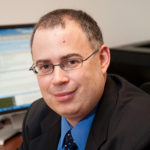
Michael Risch, Senior Scholar
Direct Dial: (610) 519-6836
Email: risch@law.villanova.edu
Michael Risch is a Senior Scholar at C-IP2 and the Vice Dean and a Professor of Law at Villanova University Charles Widger School of Law, where he is a member of the university IP Policy Board. Professor Risch’s teaching and scholarship focus on intellectual property and internet law, with an emphasis on patents, trade secrets and information access. His articles have appeared in the Stanford Law Review, Duke Law Journal, Iowa Law Review, Indiana Law Journal, Florida Law Review, George Mason Law Review, Harvard Journal of Law & Technology, and Stanford Technology Law Review, among other journals. His work has also appeared at the Yale Law Journal Online, and Penn. Law Review Online. Risch is a contributor at the Written Description blog and a periodic guest contributor at the Patently-O, Prawfsblawg, and Faculty Lounge blogs. His work has been cited by the U.S. Supreme Court.
Prior to joining the Villanova faculty in 2010, Professor Risch was an Associate Professor at the West Virginia University College of Law, where he founded the Entrepreneurship and Innovation Law Program and its Entrepreneurship Law Clinic. Prior to that, he was an Olin Fellow in Law at Stanford Law School, and a partner at intellectual property boutique Russo & Hale LLP in Palo Alto, California. He remains of counsel with its successor, Computer Law Group LLP. His practice centers around expert testimony; intellectual property litigation, licensing, auditing and protection; complex civil litigation; start-up and entrepreneurial counseling, and alternative dispute resolution. He is a member of the bars of California, the U.S. Supreme Court, the Ninth and Federal Circuit Courts of Appeal, and the Northern District of California.
Risch is also an avid computer programmer, and has customized, installed, and maintained portal web sites for both his own academic pursuits and his former firm. He also developed an electronic mail plug-in that allowed early versions of Novell Groupwise email software to seamlessly use Pretty Good Privacy encryption; Network Associates, the maker of PGP software purchased the software in 1998. Risch is a co-author of a book on software development for Novell Groupwise.
Professor Risch graduated from Stanford University with honors and distinction in public policy and with distinction in quantitative economics; he was a national merit scholar there. He earned his law degree at the University of Chicago, where he graduated with high honors and was an Olin Fellow in Law & Economics and a Bradley Fellow in Law & Economics.

Alexandra Jane Roberts, Senior Scholar
Direct Dial: (617) 373-6406
Email: al.roberts@northeastern.edu
Professor Roberts is a Senior Scholar at C-IP2 and served as C-IP2‘s Senior Fellow for Trademarks from 2022-2023. She holds a joint appointment with the Law School and the Department of Music within the College of Arts, Media and Design (CAMD) at Northeastern University. She is a leading authority on intellectual property and social media. Her research focuses on federal trademark and false advertising law, particularly in cyberspace. She has written on topics including influencer marketing; trademark use on social media; hashtags as trademarks; and trademark law’s failure to function doctrine. She also writes on law and literature. Her work has been published in journals including The Georgetown Law Journal, California Law Review, Iowa Law Review, and Texas Law Review; she has been quoted in publications such as the New York Times, the Washington Post, Rolling Stone, CNN, Sports Illustrated, and Law360.
Professor Roberts joined Northeastern in 2022 from the University of New Hampshire Franklin Pierce School of Law (UNH Law), where she remains an Affiliate Faculty Member. She previously served as executive director of the Franklin Pierce Center for Intellectual Property. She also served as a visiting assistant professor at Boston University School of Law and as an associate with Ropes & Gray.
She holds a JD from the Yale Law School, an AM from Stanford University and an AB from Dartmouth College.
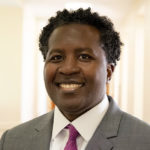 W. Keith Robinson, Senior Scholar
W. Keith Robinson, Senior Scholar
Email: robinswk@wfu.edu
W. Keith Robinson is a Senior Scholar at C-IP2 and a Professor of Law at the Wake Forest University School of Law. Professor Robinson is a nationally recognized patent scholar. He researches how legal institutions govern emerging technology. He has commented on issues of intellectual property law in media outlets and given more than seventy presentations around the world on patent law. Thomson Reuters has twice recognized Professor Robinson’s articles as the best that year in intellectual property law. His recent work has explored how artificial intelligence may impact obtaining U.S. patents. Robinson’s work has been cited in briefs before the U.S. Court of Appeals for the Federal Circuit (the court that hears all appeals in the U.S. arising under the patent laws). The Federal Circuit has also cited his work favorably. His most recent article is published in the Nevada Law Journal. In addition, he has published articles in the Florida Law Review, DePaul Law Review, and the American University Law Review. Robinson graduated from Duke University, earning a BS in electrical engineering. He received his JD, cum laude from Duke University. After law school, he worked for the Washington, DC law firm of Foley & Lardner LLP, where his practice focused on patent law. While at Foley & Lardner, Robinson was an adjunct professor at The George Washington University Law School. Before joining Wake Forest, Professor Robinson was an Associate Professor at the SMU Dedman School of law for ten years where he was an Altshuler Distinguished Teaching Professor, a founding Co-Director of the Tsai Center for Law, Science and Innovation, and Faculty in Residence in Kathy Crow Commons on the campus of SMU.
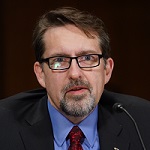 Mark Schultz, Senior Scholar
Mark Schultz, Senior Scholar
Direct Dial: (618) 453-8750
Email: mschultz@uakron.edu
Professor Mark F. Schultz is the Goodyear Tire & Rubber Company Endowed Chair in Intellectual Property Law and the Director of the Intellectual Property and Technology Law Program at the University of Akron School of Law. He teaches and writes primarily in the area of intellectual property. Prior to coming to Akron, he was a professor at Southern Illinois University School of Law for 16 years and was co-founder and a leader of the Center for Intellectual Property x Innovation Policy (C-IP2; then the Center for the Protecction of Intellectual Property (CPIP)) at George Mason University in Washington, D.C., where he remains a non-resident Senior Scholar. He also serves as a Senior Fellow of the Geneva Network, a UK-based think tank focused on international IP, trade, and public health.
His research concerns the law and economics of the global intellectual property system. As an influential voice in public policy debates regarding intellectual property, he speaks frequently around the world about the connection between secure and effective intellectual property rights and flourishing national economies and individual lives. He has testified before the U.S. Congress on copyright issues at the invitation of both the U.S. House of Representatives and the U.S. Senate. He has spoken at programs hosted by the U.S. Patent and Trademark Office, the U.S. Trade Representative, the U.S. Copyright Office, the World Intellectual Property Organization, and the World Trade Organization, as well as numerous academic institutions, think tanks, and industry groups. He currently is chair of the Academic Advisory Board of the Copyright Alliance.
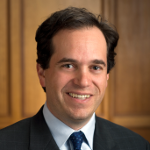 Ted Sichelman, Senior Scholar
Ted Sichelman, Senior Scholar
Direct Dial: (619) 260-7512
Email: tsichelman@sandiego.edu
Ted Sichelman is a Senior Scholar at C-IP2. He is a Professor of Law at the University of San Diego, where he is also Director of the Center for Intellectual Property Law & Markets and Executive Director of the Center for Computation, Mathematics, and the Law. He teaches and writes in the areas of patent law, intellectual property, law and entrepreneurship, empirical legal studies, law and economics, and law and artificial intelligence.
Professor Sichelman’s works have been or will be published in the Stanford Law Review, Northwestern University Law Review, Texas Law Review, Journal of Empirical Legal Studies, Harvard Journal of Law & Technology, Berkeley Technology Law Journal, and many other journals and books. Professor Sichelman’s publications have been highly cited. As of April 2016, his articles Commercializing Patents and Life After Bilski are the first and second most-cited of all intellectual property law articles published since 2010 (according to HeinOnline). Life After Bilski has also been cited by the U.S. Supreme Court (Mayo v. Prometheus (2012)) and over 20 other judicial opinions. Professor Sichelman’s articles can be downloaded here.
Professor Sichelman has participated in a number of U.S. Supreme Court cases, including playing a substantial role in a win for an injured employee in MetLife v. Glenn (2008); drafting an amicus brief in the patent case, Bilski v. Kappos (2010), in which the court largely adopted the recommendations and reasoning of the brief; and drafting amicus briefs in three other important patent cases, Global-Tech v. SEB (2011), Impression Products v. Lexmark International (2017), and TC Heartland v. Kraft Foods (2017). In 2011, he worked with the office of U.S. Representative Zoe Lofgren to draft proposed language for the recently passed America Invents Act, the most substantial revision to the Patent Act since 1952. In 2012, he served on the Lieutenant Governor of California’s task force to place a satellite office of the U.S. Patent & Trademark Office in California.
Professor Sichelman earned an undergraduate degree in the History of Philosophy of Science, with distinction, from Stanford University and a Master’s degree in Physics from Florida State University. He founded and ran a venture capital-backed software and services company, Unified Dispatch, which was later acquired by a publicly traded company. Professor Sichelman designed the company’s software and is a named inventor on several issued and filed patents and applications. After graduating from Harvard Law School, magna cum laude, he clerked for the Honorable A. Wallace Tashima of the U.S. Court of Appeals for the Ninth Circuit. He practiced in the areas of intellectual property litigation and appeals at the law firms of Heller Ehrman and Irell & Manella and is currently Of Counsel at Progress, LLP, an IP boutique law firm based in California. In 2008 and 2009, he was a Ewing Marion Kauffman Foundation Fellow at the UC Berkeley School of Law. In 2016, he was a visiting professor at Harvard Law School.
 Brenda Simon, Senior Scholar
Brenda Simon, Senior Scholar
Email: BSimon@cwsl.edu
ProFlowers Professor of Internet Studies and Professor of Law,
California Western School of Law
Professor Simon is a Senior Scholar at C-IP2. Her research interests focus on how technological developments affect intellectual property and information law. She has published articles in both scientific journals and traditional law reviews, including the Northwestern University Law Review, Houston Law Review, Case Western Reserve Law Review, Brooklyn Law Review, Nature Biotechnology, Science, and the Stanford Journal of Law, Science & Policy, among others. One of her publications was selected as among the year’s best law review articles related to intellectual property and republished in Intellectual Property Law Review
Professor Simon has taught courses related to intellectual property law, real property, and information law at Stanford Law School, Thomas Jefferson, and in the Rady School of Management at the University of California, San Diego. She has been honored to receive multiple teaching awards from her students while teaching property and patent law.
Previously, Professor Simon was the teaching fellow for the Law, Science and Technology LL.M. Program at Stanford Law School, and a research fellow in the Stanford Center for Law and the Biosciences. She is also the recipient of an Edison Innovation Fellowship. She practiced intellectual property law for several years with Fenwick & West in the Silicon Valley, where she represented technology clients in litigation, counseling, and patent prosecution. Professor Simon’s pro bono representation of clients included successful appeals on behalf of inmates before the Ninth and Federal Circuits. Before working in private practice, she served as a law clerk to Judge Mariana R. Pfaelzer of the U.S. District Court for the Central District of California.
James Stern, Senior Scholar
Email: jystern@wm.edu
James Y. Stern is a Senior Scholar at C-IP2 and Professor of Law and Director, William & Mary Property Rights Project, at William & Mary Law School.
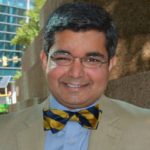 Saurabh Vishnubhakat, Senior Scholar
Saurabh Vishnubhakat, Senior Scholar
Email: saurabh.vishnubhakat@yu.edu
Saurabh Vishnubhakat is a Senior Scholar at C-IP2, a Professor of Law and Director of the Intellectual Property & Information Law Program at the Benjamin N. Cardozo School of Law, and a Research Fellow at the Duke Law Center for Innovation Policy. He writes and teaches on intellectual property, administrative law, civil procedure, and remedies, especially from an empirical perspective.
Professor Vishnubhakat’s research has been cited in federal appellate and trial court opinions, agency reports and rulemaking, and over two dozen Supreme Court briefs. His work has been published in leading law journals including the Washington & Lee Law Review and Iowa Law Review, in peer-reviewed journals including the Journal of Law and the Biosciences and the Journal of Economic Perspectives, and in the intellectual property and technology journals of the Harvard, Yale, Columbia, Berkeley, and Duke law schools. His first book, A Tort Theory of Patent Litigation: History and Reform, is under contract with Cambridge University Press.
Until 2022, Vishnubhakat was a professor at Texas A&M University, where he held tenured joint appointments in the School of Law and the Dwight Look College of Engineering, and guest-lectured in the Mays Business School. Before coming to Texas A&M, he served in the United States Patent and Trademark Office as principal legal advisor to that agency’s first two chief economists. He was also a faculty fellow at the Duke Law School, where he co-taught patent law, and was a postdoctoral associate at the Duke Center for Public Genomics, where he researched law and policy issues surrounding innovation in genetics and biomedicine.
Professor Vishnubhakat holds a J.D. and LL.M. in intellectual property from the University of New Hampshire School of Law, formerly the Franklin Pierce Law Center, where he was an editor of the Law Review. He also holds a B.S. in chemistry from the Georgia Institute of Technology. He is admitted to the bars of Texas, Illinois, the U.S. Court of Appeals for the Federal Circuit, and the Supreme Court of the United States.
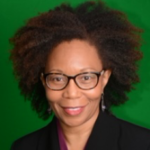 Lolita Darden, Scholar
Lolita Darden, Scholar
Professor Lolita Darden is a C-IP2 Scholar. As a registered patent attorney, Professor Darden’s scholarship focuses on the protection and preservation of intellectual property rights for creators and inventors, particularly those who are under resourced. More specifically, Professor Darden is interested in researching questions surrounding the constitutional impact of the recent changes in US intellectual property laws and exploring concepts regarding access and equity in the protection and maintenance of IP rights.
Professor Darden is a Visiting Associate Clinical Professor at George Washington University Law and Director of the new Intellectual Property and Technology Clinic. The Clinic’s primary focus is on patent and trademark application filing and prosecution, as well as appeals to the Patent Trial and Appeal Board and the Trademark Trial and Appeal Board. The Clinic also represents clients before the Copyright Claims Board.
Prior to joining the GW community, Professor Darden was an Associate Clinical Professor (with tenure) at Suffolk University Law School. She was also a lecturer of law, teaching intellectual property courses such as intellectual property survey, trademark law and practice, trademark law, and patent law. Professor Darden was also the Director of Suffolk Law School’s Intellectual Property and Entrepreneurship Clinic (“IPEC”), a multi-disciplinary clinic providing pro bono counseling and legal services for new and emerging businesses.
Prior to joining Suffolk, Professor Darden was a partner at Sachnoff & Weaver, Ltd. (Chicago) and manager of the Firm’s patent prosecution group. She counseled emerging technology businesses on all aspects of IP protection, including rights in patents, trademarks, and copyrights. Professor Darden also served as Chief IP Counsel for Duracraft Corporation, where she worked closely with marketing and product development teams and managed all IP litigation and IP protection programs. During her career, Professor Darden has had the opportunity to participate in several precedent setting patent and trademark cases, including Atlantic Thermoplastics v. Faytex Corp.(precedential ruling regarding product-by-process claim interpretation), Micron Separations, Inc. v. Pall Corporation — the companion case to Markman v. Westview Instruments (precedential case setting claim construction as a question of law), and Curtin v. United Trademark Holdings (trademark opposition finding consumer standing to oppose registration).
In 2019, Professor Darden was selected to participate in the Thomas Edison Innovation Fellowship Program sponsored by the Center for the Protection of Intellectual Property, George Mason University Antonin Scalia Law School. Professor Darden’s participation in the Edison Fellowship resulted in the completion of her paper, Overlapping and Sequential Copyright, Patent, and Trademark Rights: A Case for Overruling the Per Se Bar, which has been selected by Thomson Reuters (West) as one of the best IP articles of 2021.
 Charles Delmotte, Scholar
Charles Delmotte, Scholar
Email: delmott8@msu.edu
Dr. Charles Delmotte is a Scholar at C-IP2. Charles is assistant professor at Michigan State University College of Law. Before that he was a post doctoral fellow at NYU’s Classical Liberal Institute (2018-2022), where he’s now an affiliate fellow. He has bachelor’s and master’s degrees in philosophy, a JD, and a PhD from Ghent University. He was twice an Adam Smith Fellow in Political Economy at George Mason University (2016-2018) and was a Thomas Edison Innovation Law and Policy Fellow at George Mason University (2019-2020). Charles has more than a dozen publications that employ economics, empirical research and philosophy to scrutinize tax law and innovation policy. He currently investigates the use of innovative technologies to optimize the tax system. Charles was trained as a practicing lawyer at DLA Piper LLP.
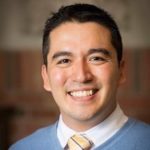 Gerardo Con Díaz, Scholar
Gerardo Con Díaz, Scholar
Email: condiaz@ucdavis.edu
Gerardo Con Díaz is a Scholar at C-IP2 and an award-winning historian of digital law.
Professor Con Díaz researches how law and policy have shaped the digital world. His first book is Software Rights, an award-winning history of software patenting in the United States. His next book, on Internet copyright, is under contract with Yale University Press. In a series of articles, he is also investigating the legal histories of medical algorithms, the California oil industry, the U.S. music industry, and Ebooks.
His research is funded by the Alfred P. Sloan Foundation, the Smithsonian Institution, and the National Endowment for the Humanities. He has also been a fellow at the Hoover Institution at Stanford University and the Center for Intellectual Property x Innovation Policy.
He is an Associate Professor of Science and Technology Studies at the University of California, Davis, and was the Editor in Chief of the IEEE Annals of the History of Computing. With Jeff Yost, he edits the Johns Hopkins Series Studies in Computing and Culture. He received a Ph.D. from Yale University and additional degrees from the University of Cambridge (Trinity College) and Harvard University.
For a list of Professor Con Díaz’s publications and major awards, please visit his faculty profile. More information is also available on his website, condiaz.com.
Tabrez Ebrahim, Scholar 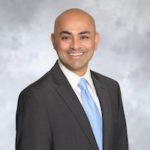
Direct Dial: (512) 961-2581
Email: tabrezebrahim@lclark.edu
Tabrez Ebrahim is an Associate Professor of Law at Lewis & Clark Law School and a Scholar at C-IP2. His scholarship focuses on patent law and on law and technology. He has been a Visiting Scholar at the University of Texas at Austin (at the McCombs School of Business and at the School of Law). Professor Ebrahim is a registered U.S. patent attorney.
 Laura Ford, Scholar
Laura Ford, Scholar
Email: lrf23@cornell.edu
Professor Laura Ford is a Scholar at C-IP2 and an Associate Professor of Law at Faulkner University’s Thomas Goode Jones School of Law. With a background in both law and sociology, Laura’s research and teaching interests include: law & religion; economic sociology; social theory; the history and development of intellectual property; and historical sociology. These combined interests may be seen in her recent book, The Intellectual Property of Nations: Sociological and Historical Perspectives on a Modern Legal Institution (CUP 2021). Other publications include articles in Qualitative Sociology; Max Weber Studies; Theory & Society; the Cardozo Public Law, Policy & Ethics Journal; and a chapter on “Law and Commercial Capitalism” for The Oxford Handbook of Max Weber. Forthcoming publications include a chapter on “Ancient Judaism and Western Legality” for the Routledge Handbook on Max Weber.
 Bowman Heiden, Scholar
Bowman Heiden, Scholar
Email: bowman.heiden@berkeley.edu
Dr. Heiden is a Scholar at C-IP2 and currently the Executive Director of the Tusher Initiative for the Management of Intellectual Capital at the Haas School of Business at UC-Berkeley. He is also the Co-Director of the Center for Intellectual Property (CIP) in Gothenburg, Sweden, and the co-chair of the Technology, Innovation, and Intellectual Property program at the Classical Liberal Institute at the NYU School of Law. Dr. Heiden has co-founded and developed the Dynamic Competition Initiative (DCI), the Increasing Diversity in Innovation (IDII) initiative, the Intellectual Capital Management (ICM) master’s program, CIP FORUM, the Business of Intellectual Property executive program, and the CIP Internship Program.
Previously Dr. Heiden was Innovation Director for the Qatar Science & Technology Park, where he was responsible for driving innovation strategy and intellectual property policy. Over the past ten years, Dr. Heiden has managed over 100 innovation projects with industry, university research institutes, healthcare providers, and start-up ventures.
Dr. Heiden holds degrees in engineering, technology management, and economics, and his research is at the interdisciplinary interface of economics, law, and innovation, in particular, intellectual property and open innovation in knowledge-intensive sectors. Before turning his focus to the field of knowledge-based business, Dr. Heiden played professional basketball in a number of European countries.
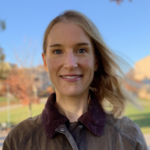 Camilla A. Hrdy, Scholar
Camilla A. Hrdy, Scholar
Direct Dial: (330) 972-6752
Email: chrdy@uakron.edu
Professor Camilla A. Hrdy is Professor of Intellectual Property Law at University of Akron School of Law. She is also an Affiliated Fellow at the Yale Law School Information Society Project and a member of the Sedona Conference Working Group on Trade Secrets.
Her articles have appeared in various law journals, including Yale Law Journal, Stanford Law Review, Fordham Law Review, Boston College Law Review, American Law Review, Florida Law Review, Wisconsin Law Review, Berkeley Technology Law Journal, and Fordham Law Review.
She is a five-time winner of Akron Law’s Outstanding Faculty Publication Award and has received many other prizes for her writing, including the Harvard Hoopes Prize and the University of Cambridge Redhead Prize.
Professor Hrdy holds a J.D. from Berkeley, a B.A. from Harvard, and an M.Phil. from the University of Cambridge.
She is a regular blogger on the popular IP scholarship blog, Written Description.
Full list of articles: https://papers.ssrn.com/sol3/cf_dev/AbsByAuth.cfm?per_id=1687909
Faculty Bio: https://www.uakron.edu/law/faculty/directory/profile.dot?u=chrdy
 John Liddicoat, Scholar
John Liddicoat, Scholar
Email: johnathon.liddicoat@kcl.ac.uk
John Liddicoat is a Scholar at C-IP2, and his primary research interest is in patent law. John is broadly interested in the development and use of new technology as it has the ability to: drive economies forward, increase public welfare, and resolve important social problems. Much of John’s research focuses on the ability of patent law to meet its welfare-enhancing goal of accelerating the creation of new technology. In biotechnology and life-sciences — special interests of John’s — this focus is particularly important, but it is also complicated; although patents can operate as incentives, they have numerous trade-offs. Smart innovation policy requires meticulous, transnational doctrinal research and robust empirical data. As a lawyer with scientific training, John strives to deliver both.
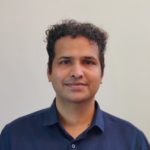 Yogesh Pai, Scholar
Yogesh Pai, Scholar
Email: yogesh.pai@nludelhi.ac.in
Dr. Yogesh Pai is a Scholar at C-IP2 and an Assistant Professor at National Law University Delhi (NLUD). He is the Co-Director of Centre for Innovation, Intellectual Property and Competition (CIIPC) at National Law University Delhi. He is also in-charge of the IPR Chair at NLU Delhi established by the Department for Promotion of Industry and Internal Trade (DPIIT), Ministry of Commerce and Industry, Government of India.
His primary scholarship concerns intellectual property (IP) law at the intersection of innovation policy, competition law and trade law. He was the Thomas Edison Fellow (2017-18) at the George Mason University, Washington D.C. In the fall of 2012, Yogesh visited the School of Law, University of Washington as the Asian Law Centre short-term Visiting Scholar. He is on the roster of consultants with the World Trade Organisation for teaching at the Regional Trade Policy Courses (RTPC) and has been a tutor with the WIPO Academy Distance Learning Programme. Yogesh serves on the Editorial Board of the WIPO-WTO Teachers Colloquium Annual Research Papers.
He has taught at Indian Law Institute, New Delhi, as a guest faculty and as a visiting faculty at the National Law School of India University (NLSIU), Bengaluru. Yogesh has a PhD from the Inter-University Centre for IPR Studies, CUSAT, Kochi, in the area of Regulation of Standard-Essential Patents in India. He has previously worked with the National Law University, Jodhpur, Centad, New Delhi and the South Centre, Geneva.
In 2013, Yogesh was nominated as a legal member in a committee constituted by the Ministry of Health, Government of India, for invoking provisions of compulsory licensing under the Patents Act, 1970, in the context of affordable healthcare. Yogesh was also the member of an expert committee constituted by the Ministry of Commerce to study the need for utility models in India (2013). He was also part of the Committee for Evaluation and Continuation of the Scheme of Promotion of Copyright and IPR Beyond the 12th Five Year Plan (2012- 2017) constituted by the DIPP, Ministry of Commerce.
 Zvi S. Rosen, Scholar
Zvi S. Rosen, Scholar
Email: zvi.rosen@siu.edu
Zvi S. Rosen is a Scholar at C-IP2 and an Assistant Professor at the Southern Illinois University School of Law. He has served as a Visiting Assistant Professor at the Maurice A. Deane School of Law at Hofstra University and as a Visiting Scholar and Professorial Lecturer in Law at George Washington University School of Law. In 2015-2016, he was the Abraham L. Kaminstein Scholar in Residence at the U.S. Copyright Office. Mr. Rosen received his J.D. from Northwestern University School of Law in 2005 and LLM in Intellectual Property in 2006 from the George Washington University Law School. He has practiced at Fried, Frank, Harris, Shriver & Jacobson LLP as well as smaller firms and his own practice, and has written extensively on the development of modern copyright and trademark law.
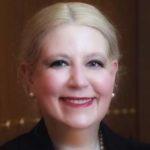 Amy Semet, Scholar
Amy Semet, Scholar
Email: amysemet@buffalo.edu
Amy Semet is a Scholar at C-IP2 and is an Associate Professor of Law at University at Buffalo Law School teaching civil procedure, property, intellectual property law and patent law at the law school, and is affiliated with the University’s department of Political Science. Her research focuses on studying legal institutions in intellectual property law (particularly patent law) and administrative law from an empirical and statistical perspective. In particular, she has created several databases of administrative agency and court decisions in intellectual property law, immigration law, labor law, and environmental law so as to better understand how agencies and courts make decisions. This empirical research then allows her to posit how these institutions can best be reformed.
Her work has appeared or is forthcoming in Georgetown Law Journal, Duke Law Journal, UC Irvine Law Review, Minnesota Law Review, Boston College Law Review, Journal of Empirical Legal Studies, Berkeley Journal of Employment and Labor Law, among others. More information about her research is available at www.amysemet.com.
Semet graduated summa cum laude from Dartmouth College, where she studied government and history, before moving on to Harvard Law School, from which she graduated cum laude. She obtained her doctorate in political science from Columbia University. Semet clerked for Judge Paul Michel at the United States Court of Appeals for the Federal Circuit. She was also an associate for six years at Simpson Thacher & Bartlett LLP in New York City where her practice related to general litigation, intellectual property litigation, and intellectual property corporate transactional law. In particular, her work at Simpson Thatcher focused primarily on patent law. She was heavily involved in a two month long bench trial involving a pharmaceutical patent, which was resolved successfully for the client by the district court and upheld on appeal by the Federal Circuit. Semet also was involved in much pro bono work, including filing and prosecuting trademark applications for public interest organizations, representing clients in divorce and custody proceedings, and assisting families with filing claims before the 9/11 Victim Compensation Fund.
Semet has much teaching experience. While a law student at Harvard Law School, she taught legal writing to first-year students as a member of the Board of Student Advisors for two years. She has gone on to teach American politics and statistics at Dartmouth’s Government Department and at Columbia’s Political Science Department and Quantitative Methods in Social Science program. Semet also did a postdoctoral fellowship for three years at the Center for the Study of Democratic Politics at Princeton University and was a Visiting Fellow at Yale Law School’s Information Society Project.
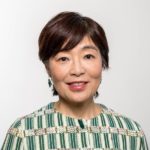 Toshiko Takenaka, Scholar
Toshiko Takenaka, Scholar
Email: toshiko@uw.edu
Prof. Toshiko Takenaka, Ph.D. is a Scholar at C-IP2 and a Washington Research Foundation/W. Hunter Simpson Professor of Technology Law at the University of Washington School of Law, Seattle, USA. Via a joint appointment, she teaches at Keio University Law School, Tokyo, Japan annually as a visiting professor. She also teaches IP law annually at Technical University of Dresden, University of Strasbourg, and University of Lyon III. She taught courses on IP Management at Technical University of Munich (TUM) 2016-2018 and has received the title of TUM Ambassador from the University President in December 2018. She served the Director of Center for Advanced Study and Research on Intellectual Property (CASRIP) at the University of Washington School of Law between 2003 and 2015.
She has published numerous articles and books on US, European and Japanese patent laws and is the main author of the book entitled “Patent Enforcement in U.S., Germany and Japan” (Oxford University Press, 2015) and the sole editor of the book entitled “Research Handbook on Patent Law and Theory (Edgar Elger, 1st ed. 2008, 2nd ed. 2019). Prof. Takenaka is a member of the board of editors for Oxford Journal of Intellectual Property Law and Practice. She also serves for Vision Committee of Intellectual Property Headquarters in Japan’s Cabinet and Intellectual Property Committee under the Industrial Structure Council in Japan’s Ministry of Economy, Trade and Industry, advising Japanese government to develop IP policies. She is affiliated with Seed IP Law Group as Of Counsel and ITN Partners as Visiting US Lawyer.
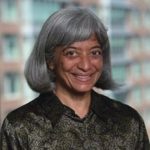 Dr. Bhamati Viswanathan, Scholar
Dr. Bhamati Viswanathan, Scholar
Email: BViswanathan@nesl.edu
Professor Bhamati Viswanathan is a Scholar at C-IP2 and a Faculty Fellow at New England Law | Boston. She has several years of teaching experience at diverse schools, including Williams College, University of Pennsylvania Law School, and most recently, Emerson College and Roger Williams University Law School.
Prior to teaching, Professor Viswanathan practiced corporate and securities law in New York and Massachusetts. She then worked at a technology startup, where she served as counsel on corporate and intellectual property matters. Professor Viswanathan is trustee and chair of the New England Section of the Copyright Society of the U.S. She is co-chair of the Emerging Technologies Committee of the American Bar Association IP Law Section. She is also a faculty advisor on the Academic Board of the Copyright Alliance.
Professor Viswanathan continues to speak, write, and advise actively on IP issues, particularly with respect to creative industries and entrepreneurship.
 Practitioner in Residence
Practitioner in Residence
 Theo Cheng, Practitioner in Residence
Theo Cheng, Practitioner in Residence
Email: theo@theocheng.com
Theo Cheng is a Practitioner in Residence at C-IP2 and an independent, full-time arbitrator and mediator, focusing on commercial, intellectual property, technology, entertainment, and employment disputes, including breach of contract and negligence actions, trade secret theft, employment discrimination claims, wage-and-hour disputes, and IP infringement contentions. Mr. Cheng has been appointed to the rosters of the American Arbitration Association (AAA), the CPR Institute, Resolute Systems, the American Intellectual Property Law Association’s List of Arbitrators and Mediators, and the Silicon Valley Arbitration & Mediation Center’s List of the World’s Leading Technology Neutrals. He serves on the AAA’s Council, and he is also the President of the Justice Marie L. Garibaldi American Inn of Court for ADR, a Past Chair of the New York State Bar Association (NYSBA) Dispute Resolution Section, and the Treasurer of the Copyright Society. He has also been inducted into the National Academy of Distinguished Neutrals. Mr. Cheng received the 2020 James B. Boskey ADR Practitioner of the Year Award from the New Jersey State Bar Association Dispute Resolution Section, and the National Law Journal named him a 2017 ADR Champion. Most recently, he was voted the 2021 Best Mediator/Arbitrator by the readers of the New Jersey Law Journal.
Mr. Cheng has over 20 years of experience as an IP and general commercial litigator with a focus on trademarks, copyrights, patents, and trade secrets. He has handled a broad array of business disputes and counseled high net-worth individuals and small to middle-market business entities in industries as varied as high-tech, telecommunications, entertainment, consumer products, fashion, food and hospitality, retail, and financial services. In 2007, the National Asian Pacific American Bar Association named him one of the Best Lawyers Under 40.
Mr. Cheng received his A.B. cum laude in Chemistry and Physics from Harvard University and his J.D. from New York University School of Law, where he served as the editor-in-chief of the Moot Court Board. He was a senior litigator at several prominent national law firms, including Paul, Weiss, Rifkind, Wharton & Garrison LLP, Proskauer Rose LLP, and Loeb & Loeb LLP. He was also a marketing consultant in the brokerage operations of MetLife Insurance Company, where he held Chartered Life Underwriter and Chartered Financial Consultant designations and a Series 7 General Securities Representative registration. Mr. Cheng began his legal career serving as a law clerk to the Honorable Julio M. Fuentes of the U.S. Court of Appeals for the Third Circuit and the Honorable Ronald L. Buckwalter of the U.S. District Court for the Eastern District of Pennsylvania.
Mr. Cheng frequently writes and speaks on a wide variety of ADR issues. He writes a regular column called Resolution Alley in the NYSBA Entertainment, Arts and Sports Law Journal, which addresses the use of ADR in those industries.
 David Grossman, Practitioner in Residence
David Grossman, Practitioner in Residence
Email: dgrossma@gmu.edu
David Grossman is a Practitioner in Residence at C-IP2 and the Senior Director of Technology Transfer & Industry Collaboration at George Mason University. Grossman is an attorney, engineer and entrepreneur. Besides holding over 20 patents, David’s intellectual property experience includes: prosecuting patents for academia and industry (including hundreds of standard essential patents), and supervising pro bono patent prosecution at the Glushko-Samuelson Intellectual Property Law Clinic. Additionally, David served as the research editor of “Tomorrow’s Technology Transfer: The Journal of the Association of University Technology Managers,” and President of the National Association of Patent Practitioners (NAPP). Early in his career, David was a toy designer for Fisher-Price, built and sold several companies, and led the software and avionics development for the X-34 rocket plane. Grossman received a Juris Doctor, magna cum laude, from the American University Washington College of Law and a Bachelor of Science in Electrical Engineering from The Pennsylvania State University.
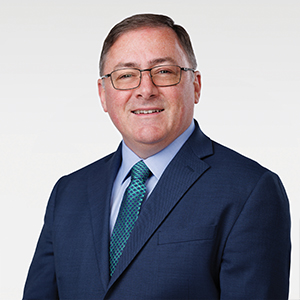 Joe Keeley, Practitioner in Residence
Joe Keeley, Practitioner in Residence
Email: joe.keeley@michaelbeststrategies.com
Joe Keeley is a Practitioner in Residence at C-IP2. Joe is the only person to have served as the Chief Intellectual Property Counsel of both the U.S. House of Representatives and the U.S. Senate and is currently with the law firm of Michael Best & Friedrich LLP where he works with their IP and federal strategies teams.
In his previous role as General Counsel and Deputy Staff Director of the Senate Judiciary Committee, Joe coordinated multiple judicial priorities of Congress and the White House including moving federal judicial nominees including those to the U.S. Supreme Court through the Committee. His legislative responsibilities included all civil matters including copyright, trademark, and patent legislation, privacy, antitrust, arbitration, litigation funding, and artificial intelligence. Joe negotiated, drafted, and guided to enactment the 2020 intellectual property legislative package that created the Copyright Claims Board while also enacting a felony streaming provision. Previously, Joe guided to enactment the end of the Section 119 compulsory satellite license.
Earlier, Joe served as Chief Courts & Intellectual Property Counsel of the U.S. House of Representatives Judiciary Committee, during which time he focused on patent reform, an extensive 20-hearing copyright law review, and enactment of both the Music Modernization Act and the Defend Trade Secrets Act. The Music Modernization Act has already paid out over $1 billion in royalties to songwriters worldwide via the newly created Mechanical Licensing Collective of Nashville.
 Dale Lazar, Practitioner in Residence
Dale Lazar, Practitioner in Residence
Email: dlazar@gmu.edu
Dale Lazar is a Practitioner in Residence at C-IP2 and has counseled on intellectual property matters concerning a variety of technologies. He has focused on patenting electronic technology, patenting and copyrighting computer hardware and software, litigating patents and copyrights, negotiating and drafting licenses for patents and software and preparing software-related agreements. Mr. Lazar has also been involved in analyzing electronic and computer-related patents and copyright for infringement and validity.
Mr. Lazar wrote and lectured extensively on patent prosecution and litigation for the Patent Resources Group. He taught “Designing around Valid US Patents” from 1993 to 1999; “Electronics and Software Patent Copyright Practice” in 1998; “Advanced Patent Prosecution” from 1979 to 1998; and has taught “Crafting and Drafting Winning Patents” from 1999 to 2019 and the Patent Bar review course from 1984 to 1999. He also has lectured to groups around the world on topics related to US patent law and has authored numerous papers on patent subjects.
The respected English publisher Chambers & Partners cites him in Chambers USA: America’s Leading Lawyers for Business. Chambers has noted that clients “praise his ‘depth of understanding in technical matters'” and has said that he “is described as an ‘expert on drafting techniques’ who also possesses an ‘exceptional knowledge of patent case law.'”
Legal 500 cites him for his patent litigation practice. Mr. Lazar is listed in three Marquis publications, Who’s Who in American Law, Who’s Who in America and Who’s Who in the World, and he has been named both a Virginia Super Lawyer and a Washington, DC Super Lawyer in the area of Intellectual Property.
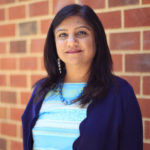 Hina Mehta, Practitioner in Residence
Hina Mehta, Practitioner in Residence
Email: hina.mehta@virginiaipc.org
Hina Mehta is a Practitioner in Residence at C-IP2. She is Director, University Commercialization Program atPreviously, as the Director of the Office of Technology Transfer at George Mason University, she oversaw all aspects of bringing university-initiated innovations to the marketplace. She was responsible for developing strategies for marketing, licensing and commercialization of intellectual property developed by university investigators. At Mason, she mentored faculty led teams in NSF funded entrepreneurship programs such as I-Corps. She brings together industry experts to assess the portfolio of multi-disciplinary inventions and facilitates seed funding through intramural mechanisms. Her previous experience includes biomedical research, strategic consulting and co-founding a startup. Hina is passionate about community service, and devotes her free time to three nonprofit organizations and is a recipient of Maryland Governor’s citation and Volunteer Excellence Service Award. She holds a PhD in Neuroscience from Indian Institute of Chemical Biology, India and an MBA from Robert H. Smith School of Business, Univ. of Maryland.
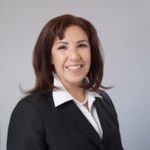 Dr. Stephanie M. Semler, JD, PhD, Practitioner in Residence
Dr. Stephanie M. Semler, JD, PhD, Practitioner in Residence
Email: ssemler@gmu.edu
An alumna of ASLS, Stephanie Semler’s practice areas include Trademarks, Copyrights and Design along with other forms of intellectual property protection. As an author and artist, she is passionate about helping creators protect and control their work. After teaching philosophy at the post-secondary level for more than twenty years, she started her legal career as a law clerk at the U.S. Patent and Trademark Office, then joined the Mason Arts and Entertainment Advocacy Clinic working for clients on copyright and trademark cases. She is currently a Supervising Attorney with the Mason Arts and Entertainment Advocacy Clinic.
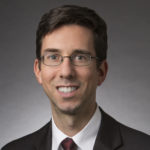 Eric Solovy, Practitioner in Residence
Eric Solovy, Practitioner in Residence
Email: esolovy@qualcomm.com
Eric Solovy is Vice President and Legal Counsel at Qualcomm and a Practitioner in Residence at C-IP2.
Eric advises Qualcomm’s global government affairs team on a variety of legal issues, including international trade and investment law; export controls, sanctions, and investment restrictions; and international and domestic intellectual property law.
For over two decades in private practice, Eric counseled companies, trade associations and governments on international trade matters, and litigated disputes over such matters. He focused on the implementation and enforcement of international trade and investment agreements, and on compliance with U.S. sanctions and export controls. Eric was named by Law360 in 2020 as one of only five attorneys in the United States designated as an “MVP” for international trade law, and was consistently recognized in Who’s Who Legal: Trade and Customs.
Before the World Trade Organization, Eric has been at the center of the most complex and contentious disputes in its history, including having served as co-lead outside counsel for Airbus in the dispute over government support to the U.S. large civil aircraft industry. Eric combines his experience in both international trade and intellectual property law, and frequently counsels, writes, and lectures on the international trade law and policy aspects of intellectual property protection, including with respect to intellectual property protection in the Agreement on Trade-Related Aspects of Intellectual Property Rights (“TRIPS Agreement”) and various Free Trade Agreements.
Eric frequently publishes on the topic of international intellectual property law, including in the Northwestern Journal of International Law & Business, the George Washington International Law Review, the Journal of Intellectual Property Law & Practice (Oxford University Press), and the Biotechnology Law Report.
While in private practice at Sidley Austin LLP, Eric served as co-lead outside counsel to the State of Qatar in securing a landmark victory in the World Trade Organization dispute against Saudi Arabia (Saudi Arabia – Protection of Intellectual Property Rights (DS567)). Working as part of Qatar’s delegation, Eric successfully challenged Saudi Arabia’s failure to protect intellectual property rights as violating multiple provisions of the TRIPS Agreement. This was the first dispute in the WTO’s history in which a panel ruled that a country failed to satisfy its obligation, under Article 61 of the TRIPS Agreement, to initiate criminal procedures against willful intellectual property infringement. It was the first time in the 70+-year history of multilateral trade rules that a panel rejected a party’s national security defense.
Eric was a law clerk to the Honorable Pauline Newman of the U.S. Court of Appeals for the Federal Circuit. He received his JD from Harvard Law School, where he served as the Executive Editor of the Harvard International Law Journal. For several years, Eric served as an adjunct professor of law at the American University Washington College of Law, teaching a course in International & Comparative Patent Law.
 Masami Kawase, Visiting Scholar (2021-2023)
Masami Kawase, Visiting Scholar (2021-2023)
Email: mkawase@gmu.edu
Masami Kawase was a Visiting Scholar at C-IP2 from 2021-2023. He is a patent examiner at Japan Patent Office. He also worked on a patent application survey, a revision of the Japanese Patent Law in 2019 and Classification Project Coordinator for Experts Group on Semiconductor Technology. He holds master’s and bachelor’s degrees in Electrical and Electronic Engineering, Tokyo Institute of Technology.

